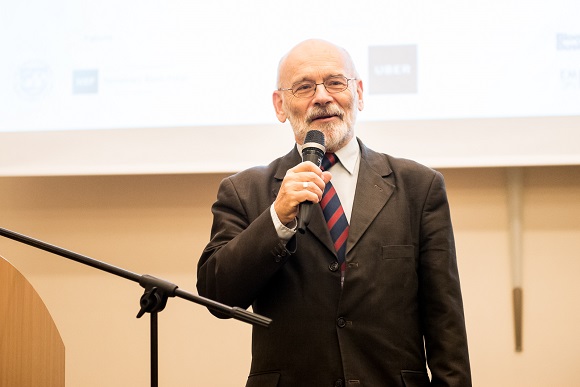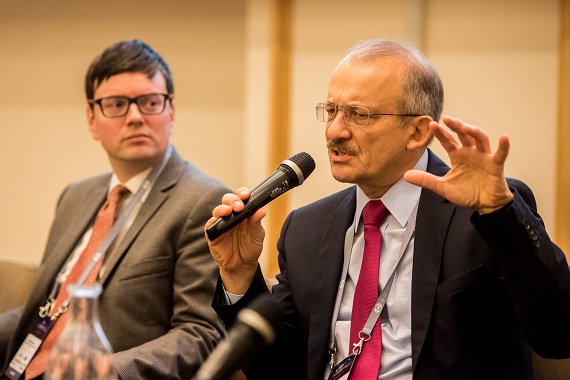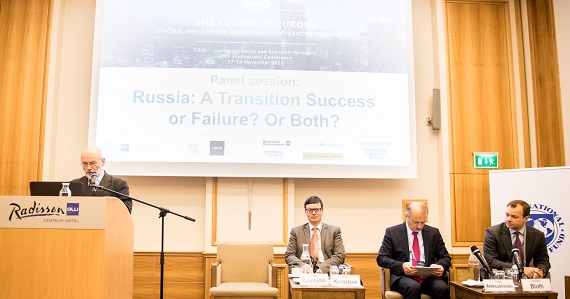Russia: A Transition Success or Failure? Or Both?
“The situation in Russia is not about economics. It’s about politics,” noted Professor Sergey Aleksashenko during the session dedicated to Russia – a key player for the future of Europe. The session featured Professor Marek Dąbrowski, CASE co-founder and longstanding fellow, Professor Sergey Aleksashenko, former Deputy Chairman of the Central Bank of Russia, Dr. Alexey Kuznetsov, Deputy Director at the Primakov National Research Institute of World Economy and International Relations, and Dr. Christian Bluth, Project Manager at Bertelsmann Stiftung.
Professor Marek Dąbrowski opened the session by discussing Russia’s institutional and macroeconomic fragility. He noted that there had been a significant decrease in output after 2007 and named several misguided policy responses, such as the heavy use of bailouts, a relaxation in fiscal policy, and renationalization. Professor Dąbrowski also distinguished three events that profoundly affected the Russian economy: the break-up of Yukos, the global financial crisis, and its annexation of Crimea in 2014.

Professor Sergey Aleksashenko noted that in discussing the Russian transition, a broader perspective should be adopted, which encompasses various dimensions of society, culture, and politics. He discussed the damaging effect of inflation on Russia’s economy and the country’s substantial dependence on natural resources.
In turn, Dr. Alexey Kuznetsov focused on the successes of Russian economic liberalization in recent years, using examples from the automotive industry and agriculture. He also noted that Russia’s FDI outflows are largely politically driven, which explains their concentration in places such as North Korea and Central Asia.

Dr. Christian Bluth emphasized that Russia had been using trade as another instrument of foreign policy, which explains its effort towards integration within the Eurasian Economic Union. At the same time, Russia’s performance as a WTO member has been overshadowed by its willingness to implement only those WTO regulations that serve the country’s own interests.
Although the speakers were able to find common ground in the discussion, it was clear that differences in the interpretation of Russia’s modern economic history still exist after over two decades of the functioning of a free market. The Q&A round at the end of the session provided an opportunity to draw conclusions. The closing remarks reflected the recurring theme of the conference: the importance of institutions to social and economic development.

